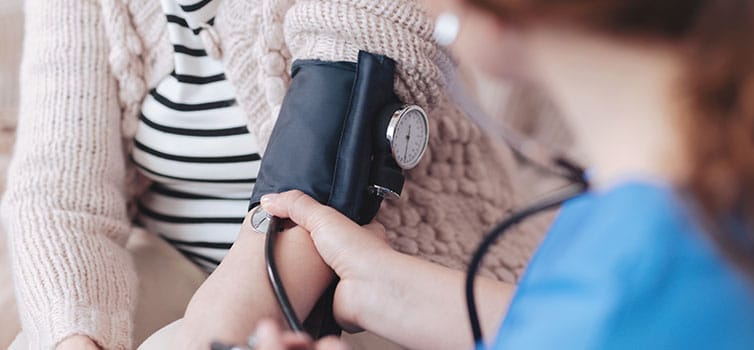Why is it important to take note of one’s blood pressure? How does blood pressure support healthy bodily function, and in what areas?
Blood pressure is required for effective blood circulation and perfusion of vital organs. High blood pressure can damage these organs leading to disease and disability. A normal resting blood pressure value taken at the clinic should be below 140/90mmHg.
Is high blood pressure considered a serious illness or condition? What are the common causes for it?
High blood pressure is a serious condition. When it is severe, it can lead to sudden life-threatening complication such as bleeding in the brain, heart or kidney failure. Even mild to moderately high blood pressure can cause serious harm to the body over time.
Most adults have no identifiable cause of high blood pressure. This is known as primary or essential hypertension. Genetic factors as well as poor lifestyle habits such as lack of exercise, obesity, poor diet, and excess alcohol may contribute to the development of high blood pressure in this group.
Less commonly, high blood pressure may be due to another underlying condition. This is known as secondary hypertension. Some possible causes of secondary hypertension are obstructive sleep apnea, kidney disorders, adrenal gland tumours, thyroid problems, certain medications, certain defects in blood vessels from birth (congenital).
Does high blood pressure increase the risk of certain diseases? What are they?
High blood pressure makes the blood vessels in the body unhealthy and narrowed, a process known as atherosclerosis. This in turn may lead to coronary heart disease which can result in sudden cardiac death, heart attack and heart failure. Other conditions also related to atherosclerosis are stroke, kidney failure and peripheral vascular disease.
What are the symptoms of high blood pressure?
Occasionally one might experience dizziness or headaches with high blood pressure, but more commonly there are no symptoms, hence earning it the moniker “silent killer”. Often blood pressure is found to be high only after the person has developed the complications mentioned above. As high blood pressure can go on undetected for years, it is therefore prudent to have it checked regularly in order to identify and intervene before complications occur.
What is the relation between a person’s blood pressure and his or her diet?
Overeating can result in being overweight or obese, which predisposes to high blood pressure. Excessive salt (sodium) intake has also been linked to high blood pressure. In contrast fibre may be beneficial as well as minerals such as potassium, magnesium and calcium in blood pressure regulation.
Is a person’s diet considered the most major contributing factor to high blood pressure? Apart from monitoring one’s diet, what other lifestyle changes can I make to lower my high blood pressure?
Apart from dietary measures, blood pressure can also be lowered by ensuring adequate sleep, good stress management, regular physical activity and maintaining a healthy weight.
What kinds of foods can I eat to help lower my blood pressure?
Some food has been shown to have protective effects on blood pressure. Some examples are:
- Blueberries which contains flavonoids.
- Fresh leafy greens like romaine lettuce, arugula, kale, turnip greens, collard greens and spinach which are high in potassium.
- Potatoes which contain potassium and magnesium.
- Beetroot which contains nitrates
- Skim milk which is high in calcium and low in fat
- Oatmeal that is low in fat, low in sodium, high in nitrates and fibre, all of which have properties that might help regulate blood pressure.
However, rather than concentrating on individual foods to lower blood pressure, dietary modifications should instead focus on improving overall eating habits. The DASH diet, which stands for Dietary Approaches to Stop Hypertension, is one of the best studied diets that have been found to lower blood pressure. The simple diet encourages portion control, more fruits, vegetables and low fat dairy, cutting down on bad fats such as saturated and trans-fats, eating more whole-grain foods, and choosing healthier proteins (fish or poultry) or snacks (nuts). Also limit sodium, sweets, sugary drinks and red meats.






